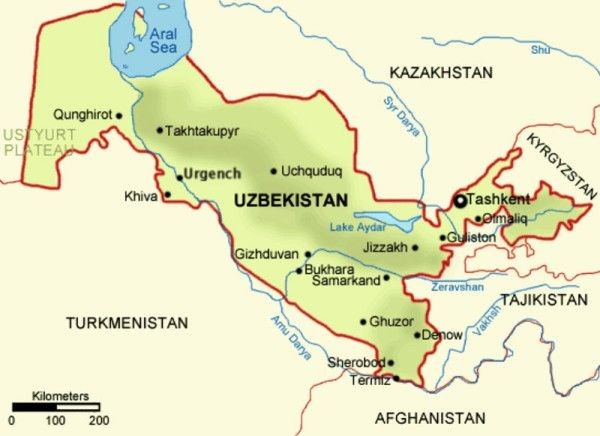TASHKENT (TCA) — Following the launch of a broad reform programme in Uzbekistan, the European Bank for Reconstruction and Development (EBRD) has taken its engagement with the country to a new level by opening an office and signing the first new projects since 2010, the Bank said.
On November 8, EBRD First Vice President Phil Bennett opened the Bank’s new Resident Office in the capital Tashkent and said: “We are very pleased to be expanding our presence in the country and opening a new office. We are confident that in the context of the wide reforms that are being undertaken we will very quickly build a strong pipeline of projects. The EBRD can be a strategic partner for Uzbekistan, who can bring not only much-needed financing but also best international business standards and corporate governance practices.”
Demonstrating the EBRD’s new stage of engagement with Uzbekistan the Bank also signed three loan agreements during First Vice President Bennett’s visit for a combined total of US$ 120 million. The largest will be a US$ 100 million facility to the National Bank for Foreign Economic Activity of Uzbekistan (NBU) for on-lending to small and medium-sized enterprises (SMEs) and trade finance.
The financing package will consist of a US$ 70 million credit line to support micro, small and medium-sized businesses (MSMEs) across Uzbekistan and a limit of up to US$ 30 million under the EBRD’s Trade Facilitation Programme (TFP).
With 93 branches across Uzbekistan, NBU will be well placed to provide much-needed financial resources to smaller businesses, especially in rural areas of the country, by on-lending the EBRD funds to eligible companies that aim to grow their business.
Meanwhile, the trade finance facility will help NBU to support import and export transactions, further develop its correspondent banking services and strengthen its trade finance product range.
Also, the agribusiness company LLC JV Agromir Juice and the medical supplier Mutabar Medical Standart LLC will receive around US$ 10 million loans each for their expansion and growth. Finally, the EBRD signed a Memorandum of Understanding with the Chamber of Commerce and Industry of Uzbekistan on joint work to improve competitiveness of SMEs in the context of the Bank’s Small Business Initiative.
The EBRD’S current objectives in Uzbekistan are to support domestic SMEs, promote trade finance and cross-border cooperation as well as facilitate foreign direct investment that will result in the transfer of technologies and know-how and thus the improvement of the competitiveness of the Uzbek economy. It is expected that the EBRD Board of Directors will agree a new country strategy for Uzbekistan in 2018, which will set out longer-term strategic priorities.
Between 1992 and 2010, the EBRD invested €894 million in Uzbekistan in 54 projects. Entering a new stage of engagement in the country, the Bank has already identified a number of possible new projects, some of which are due to be signed by the end of 2017, with more to follow in 2018.







